When it comes to heavy-duty machinery, two of the most essential machines that come to mind are the wheel loader and the tractor. Both machines are essential tools across various industries, including construction, agriculture, and logistics, where they perform a wide array of tasks.
However, the decision to choose between a wheel loader vs tractor depends on various factors like the job at hand, terrain, load capacity, and desired versatility.In this article, we’ll dive into the advantages, drawbacks, and standout features of each machine, giving you the insights needed to make a well-informed choice.Let’s dive into the ultimate showdown between the wheel loader and the tractor, and discover which one reigns supreme for your specific needs.
Tabla de contenido
PalancaWhat is a Wheel Loader?
A wheel loader is a heavy equipment machine designed to move materials around a worksite.It usually comes with a large front bucket designed to scoop, lift, and move materials like dirt, gravel, sand, and construction debris. Built for maximum efficiency, these loaders are known for their impressive maneuverability, whether on smooth paved surfaces or challenging rough terrains.
Wheel loaders are widely used in industries like construction, mining, and road maintenance, where quick and efficient material handling is essential. They come in a range of sizes, from compact models for lighter tasks to large machines that can lift several tons of material in a single load.
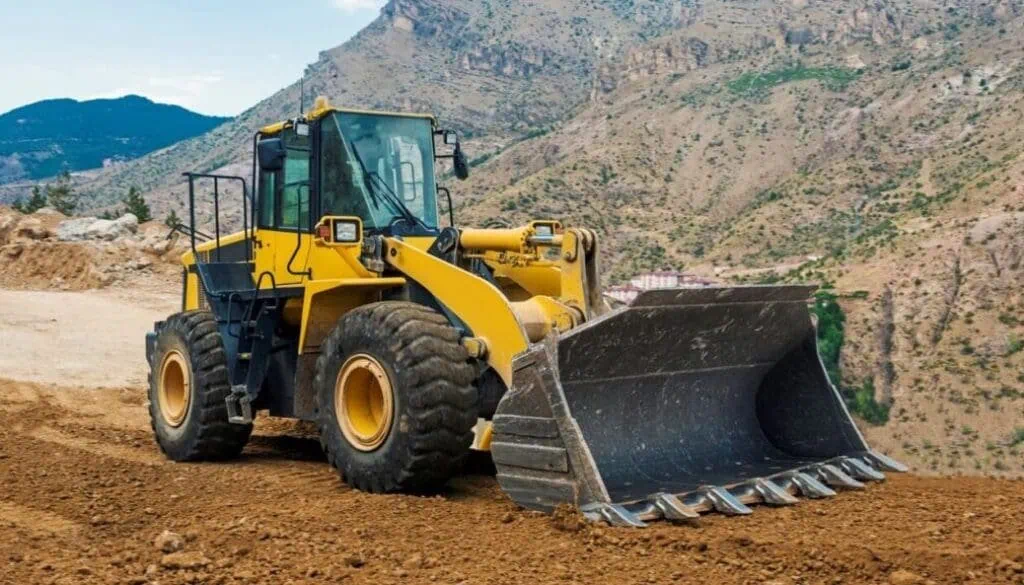
Key Features of Wheel Loaders:
- Bucket Attachment: The most defining feature of a wheel loader is its bucket attachment, which can be customized for different materials and tasks.
- Hydraulic Lifting: A wheel loader uses hydraulic systems to lift the bucket and move materials, providing superior power and lifting capacity.
- High Mobility: Unlike tracked machines, wheel loaders have rubber tires, which enable them to move swiftly and efficiently on hard surfaces.
- Versatility: Wheel loaders can be fitted with a variety of attachments, such as forks, snowplows, and sweepers, allowing them to tackle a wide range of tasks.
What is a Tractor?
A tractor is a versatile agricultural machine commonly used for farming tasks such as plowing, tilling, planting, and hauling. While tractors have historically been designed for agriculture, modern tractors have evolved to serve a broader range of functions, from construction to landscaping.
Tractors are often more compact than wheel loaders and feature large rear wheels, which provide traction and stability on uneven terrain. The front of the tractor is usually built to accommodate various attachments, like plows, mowers, or loaders, depending on the specific job at hand.
Key Features of Tractors:
- Rear-Wheel Drive: Tractors are equipped with large rear wheels that allow them to work efficiently on soft, muddy, and uneven surfaces.
- Wide Range of Attachments: From plows to sprayers and backhoes, tractors can be fitted with a variety of attachments that enable them to perform different jobs.
- Low Ground Pressure: Tractors are designed to minimize ground pressure, making them ideal for working on delicate soils without causing damage.
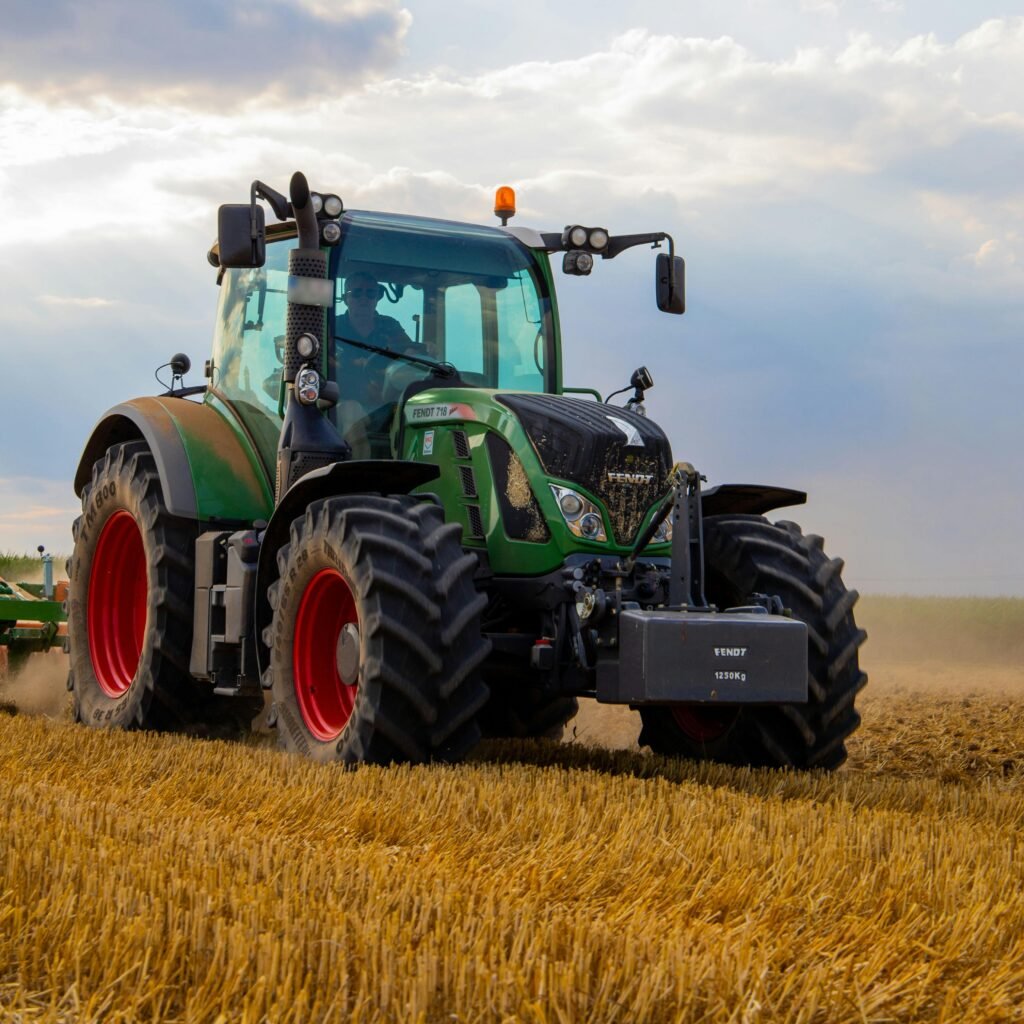
Wheel Loader vs Tractor: Key Differences
1. Purpose and Functionality
The primary difference between a wheel loader vs tractor lies in their design and intended use.Wheel loaders are mainly built for handling materials in industries like construction, mining, and other heavy-duty tasks. They are highly effective at lifting, transporting, and dumping materials with speed and efficiency.
On the other hand, tractors are often used for agricultural work and are best suited for tasks that require ground engagement, such as plowing, tilling, and planting. Tractors are also used in landscaping and hauling jobs where the ground conditions are not as hard or paved.
2. Power and Efficiency
When it comes to raw power and lifting capacity, wheel loaders tend to have an edge over tractors. Thanks to their robust hydraulic systems and larger bucket sizes, wheel loaders can handle much heavier loads than tractors. A wheel loader can lift and move loads weighing several tons, making it perfect for construction sites and large-scale material handling tasks.
Tractors, while powerful in their own right, are not designed for heavy lifting. However, tractors shine in areas where traction and ground engagement are crucial. With their rear-wheel drive and rugged tires, tractors are built to handle soft or uneven ground, making them ideal for working on farms, muddy fields, or sloped terrain.
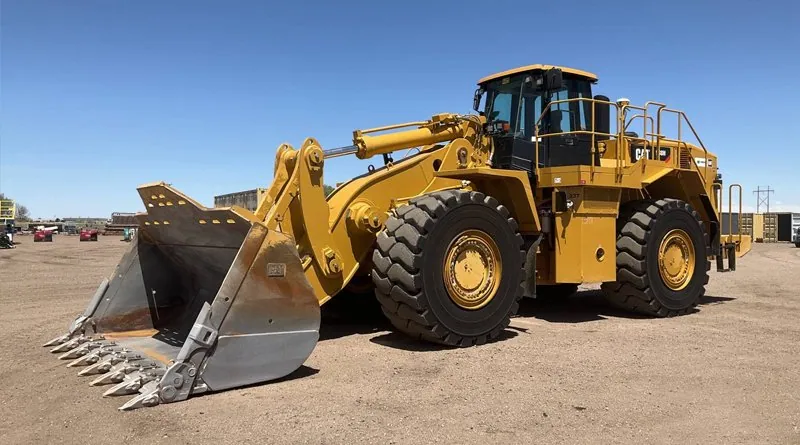
3. Maneuverability
One of the key strengths of wheel loaders is their impressive mobility. Thanks to their rubber tires and compact design, they can swiftly navigate paved or firm surfaces. Whether it’s loading trucks at a construction site or shifting materials around an industrial yard, wheel loaders provide exceptional speed and efficiency on hard ground.
In contrast, tractors are more suited for rough, uneven, or muddy terrain, where their large rear tires provide stability and traction. Tractors may not be as fast as wheel loaders on solid ground, but they are better equipped to handle the demands of agricultural tasks or rough environments.
4. Versatility and Attachments
Both wheel loaders y tractors are highly versatile machines that can be fitted with a range of attachments, but they excel in different ways.
Wheel loaders are generally equipped with a variety of specialized attachments for material handling, including different bucket types, forks, and custom lifting arms. These attachments are perfect for loading, lifting, and transporting heavy materials, making wheel loaders the preferred option for construction, mining, and other industrial tasks.
Tractors, on the other hand, are the kings of agricultural versatility. They can be equipped with a wide range of implements, such as plows, seeders, sprayers, and tillers. This adaptability makes tractors invaluable for farming, gardening, and landscaping tasks. Additionally, tractors are often used for hauling trailers or even towing other machinery.
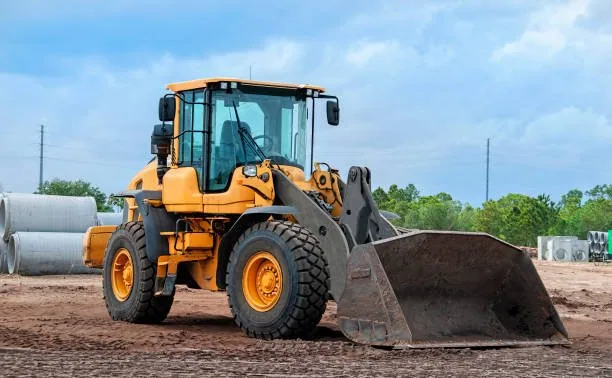
5. Cost and Maintenance
When it comes to cost, tractors are generally less expensive than wheel loaders. The initial purchase price of a tractor is often lower, which makes it a more affordable option for small businesses or individual farmers. Additionally, maintenance costs for tractors are typically lower compared to wheel loaders, mainly due to the simpler design and less sophisticated technology.
However, wheel loaders usually deliver superior performance and efficiency in demanding environments. While they may require a higher initial investment, the long-term returns are often much greater, particularly for businesses engaged in large-scale construction or material handling.
6. Safety Features
Safety is a key factor when deciding between a wheel loader and a tractor. Wheel loaders come with important features like ROPS (Rollover Protective Structures), large mirrors for improved visibility, and ergonomic controls that enhance safety in busy, high-risk work environments. Their larger size and weight also provide greater stability, reducing the risk of tipping over during heavy lifting.
Tractors, especially those used for agricultural work, come with safety features like rollover protection and adjustable seating for operators. While they might not be as large or heavy as wheel loaders, tractors are designed to navigate tricky landscapes safely.
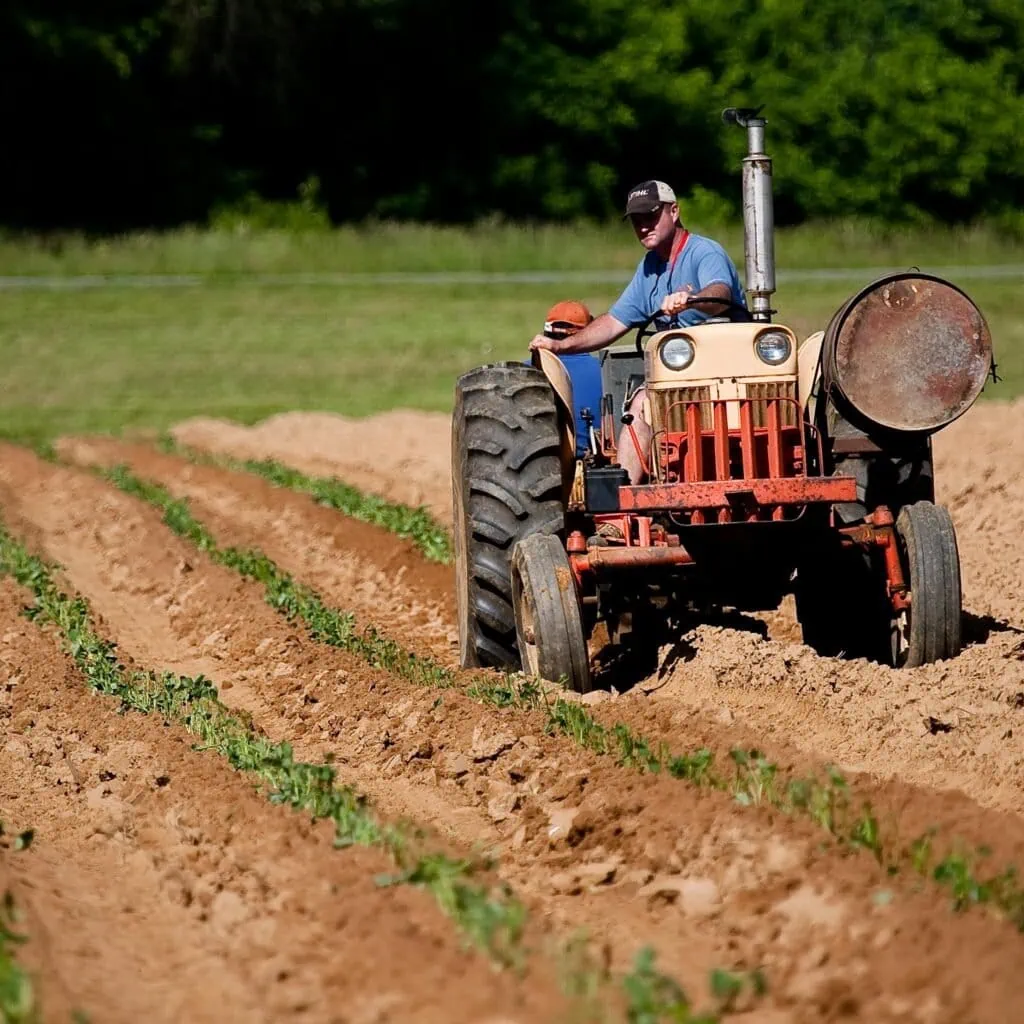
Which One Should You Choose?
- Choose a Wheel Loader if you need:
- High lifting capacity and material handling capabilities.
- Mobility on paved and industrial surfaces.
- Versatility with specialized attachments for construction, mining, or material transport.
- Efficient performance on hard surfaces.
- Choose a Tractor if you need:
- Versatility for agricultural tasks like plowing, tilling, and hauling.
- Ability to work on soft, uneven, or muddy terrain.
- A more affordable option for small businesses or personal farming.
- The ability to attach a wide range of implements for farming, gardening, and landscaping.
Conclusion: Wheel Loader vs Tractor – The Final Verdict
Both the wheel loader and the tractor are indispensable machines in their respective fields. The wheel loader excels in heavy-duty material handling, offering speed and efficiency on hard surfaces. If your work involves construction, mining, or transporting industrial materials, investing in a wheel loader is likely the smarter choice.
However, if you are involved in agriculture or need a machine that can handle rough, uneven terrain with a wide variety of attachments, a tractor is the clear winner. It excels in farming tasks, landscaping, and working in areas where ground engagement and stability are key.
Ultimately, the choice between a wheel loader vs tractor depends on your unique requirements. Assessing the job at hand, considering the terrain, and understanding the machine’s capabilities will guide you in selecting the best piece of equipment for your needs.If you have any questions, feel free to contact us.
